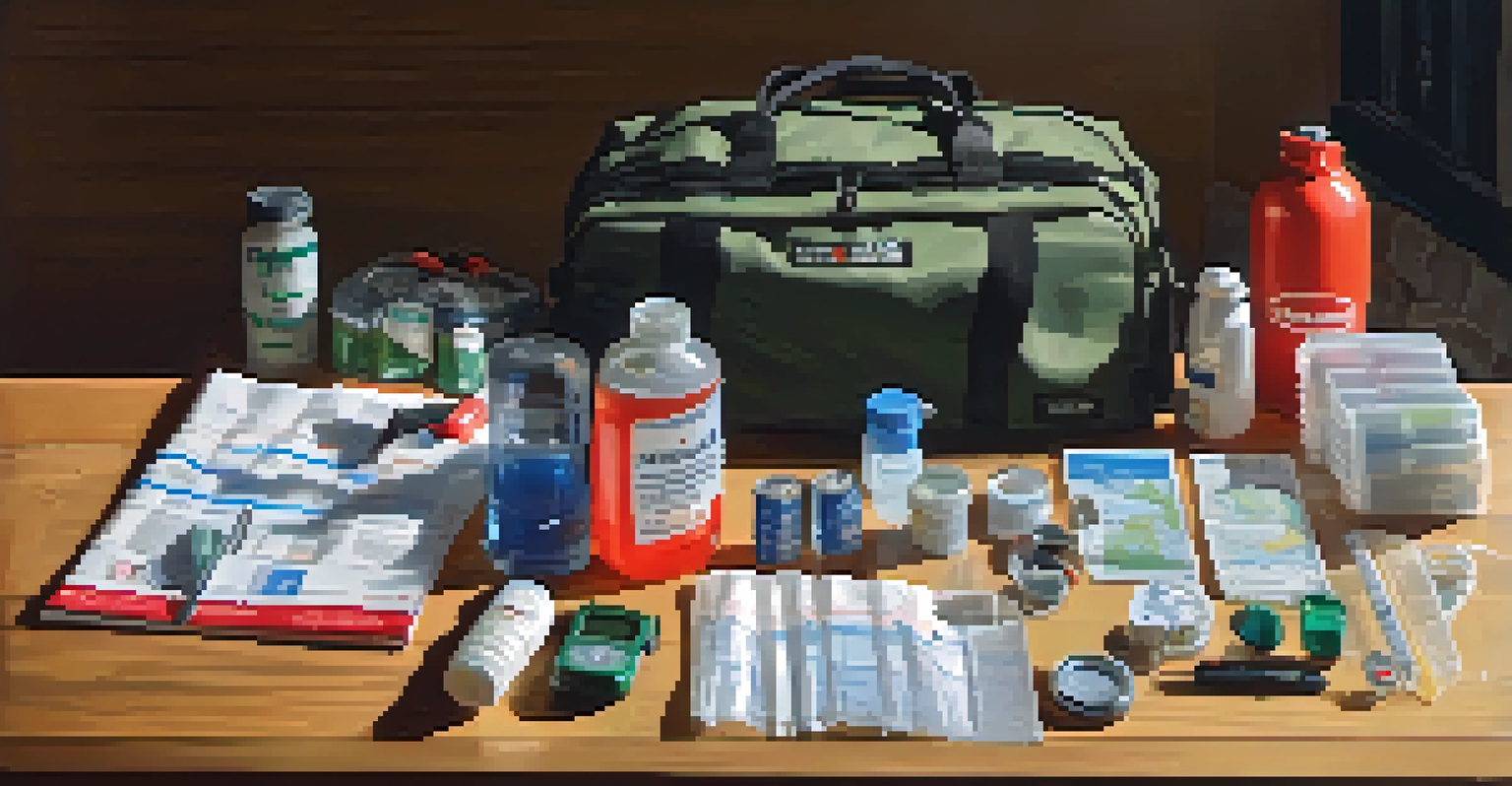Hurricane Preparedness in Houston: Community Engagement Strategies

Understanding the Importance of Hurricane Preparedness
Hurricane preparedness is crucial, especially in a city like Houston, which frequently faces severe weather events. Understanding the risks associated with hurricanes can significantly reduce the impact on lives and property. By being proactive, communities can save lives and minimize damage, leading to quicker recovery times after a storm.
By failing to prepare, you are preparing to fail.
Preparedness isn't just about having supplies; it's about creating a culture of readiness. When residents understand the potential threats and their roles in an emergency, they are more likely to take action. This shift in mindset can make a huge difference when a hurricane approaches, as communities come together to support one another.
Engaging the community in preparedness efforts creates resilience. This means not only being ready for the storm but also knowing how to recover afterward. When people work together, they share resources and information, making the whole community stronger.
Building Awareness Through Education and Resources
Education is a powerful tool in hurricane preparedness. By providing residents with information about hurricanes, including how to prepare and respond, communities can foster a sense of agency and readiness. Workshops, seminars, and informational pamphlets can be effective methods to disseminate this knowledge.

Online platforms and social media are also essential in spreading awareness. By utilizing these channels, communities can reach a larger audience and ensure that critical information is accessible. For instance, sharing tips on how to create an emergency kit or develop a family evacuation plan can empower residents to take action.
Community Engagement is Key
Fostering a culture of preparedness through community involvement strengthens resilience and ensures a collective response during hurricanes.
Moreover, partnerships with local schools and organizations can amplify educational efforts. Engaging children and families through interactive programs not only raises awareness but also instills lifelong preparedness habits. When everyone is informed, the entire community becomes more resilient.
Fostering Community Engagement Through Volunteer Programs
One of the most effective ways to promote hurricane preparedness is through volunteer programs. These initiatives encourage residents to take an active role in their community’s safety. By volunteering, individuals can learn valuable skills, such as first aid and emergency response, which can be beneficial during a hurricane.
The best way to predict the future is to create it.
Volunteer programs also create a sense of camaraderie and connection among residents. When people come together for a common cause, it builds trust and strengthens relationships. This network of support can be vital during a crisis, as neighbors look out for one another.
Additionally, volunteers can help organize community events, such as drills and preparedness fairs. These events not only provide practical training but also serve as a platform for sharing resources and information, further enhancing community engagement in hurricane preparedness.
Utilizing Social Media for Real-Time Communication
Social media plays a crucial role in modern disaster preparedness. Platforms like Twitter and Facebook allow for real-time updates and communication, which can be vital during a hurricane. By creating dedicated pages or groups, communities can share important information quickly and efficiently.
In addition to sharing updates, social media can be used to foster discussions and share experiences. Residents can ask questions, share resources, and provide support to one another. This sense of community can be incredibly comforting during uncertain times, as individuals feel they are not alone in their concerns.
Education Empowers Residents
Providing accessible information and resources equips residents with the knowledge and skills needed to effectively prepare for and respond to hurricanes.
Moreover, social media can help amplify official messages from local authorities. By sharing these updates widely, communities can ensure that everyone receives the necessary information to prepare. It’s about creating a connected community that stays informed and ready.
Creating Accessible Emergency Plans for All Residents
Accessibility is key when it comes to emergency plans. Communities must ensure that all residents, including those with disabilities or language barriers, can understand and follow emergency protocols. This might mean providing materials in multiple languages or formats that cater to different needs.
Clear and concise emergency plans should be made available to every household. Utilizing local community centers, schools, and libraries as distribution points can help reach a diverse audience. It's essential that everyone knows what to do before, during, and after a hurricane.
Additionally, involving community members in the planning process can lead to more inclusive strategies. By seeking input from a wide range of residents, communities can develop plans that are not only effective but also resonate with the people they serve.
Collaborating with Local Organizations for Support
Collaboration with local organizations can significantly enhance hurricane preparedness efforts. These groups often have resources and expertise that can be invaluable during a crisis. By partnering with non-profits, businesses, and faith-based organizations, communities can create a robust support system.
Local organizations can help facilitate training sessions, distribute emergency kits, and provide shelter during hurricanes. Their established trust within the community can also encourage more residents to participate in preparedness initiatives. This network of collaboration fosters a sense of solidarity and shared responsibility.
Collaboration Enhances Support
Partnering with local organizations amplifies preparedness efforts by leveraging their resources and expertise, creating a stronger support network for the community.
Moreover, these partnerships can extend beyond hurricane season. By working together year-round, communities can build resilience and ensure that everyone is prepared for any emergency that may arise.
Evaluating and Improving Preparedness Efforts Post-Hurricane
After a hurricane has passed, it's crucial to evaluate the community's preparedness efforts. This reflection helps identify what worked well and what could be improved. By gathering feedback from residents and organizations, communities can make necessary adjustments for future events.
Conducting post-event surveys or community meetings can be an effective way to gather insights. These discussions not only provide valuable information but also promote a sense of involvement among residents. When people feel that their opinions matter, they are more likely to engage in future preparedness activities.

Continuous improvement is essential in building a resilient community. By regularly updating and refining preparedness strategies, communities can adapt to changing circumstances, ensuring that everyone is ready for the next hurricane that may come their way.